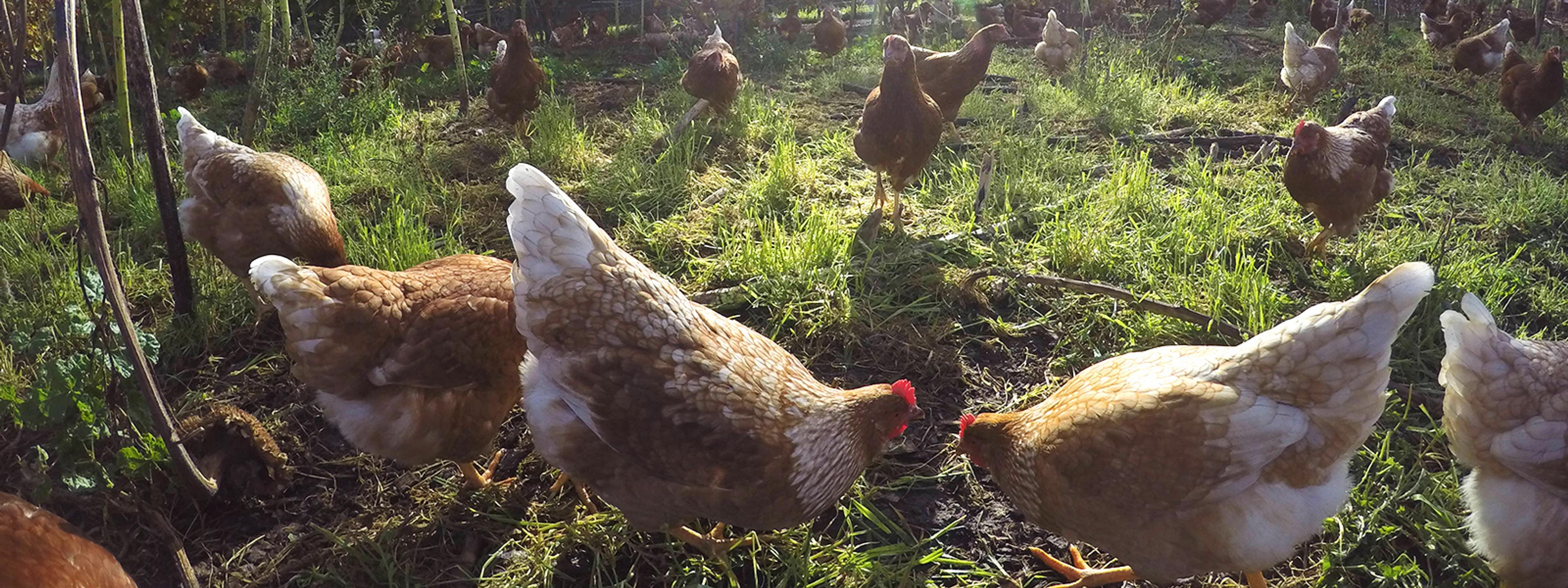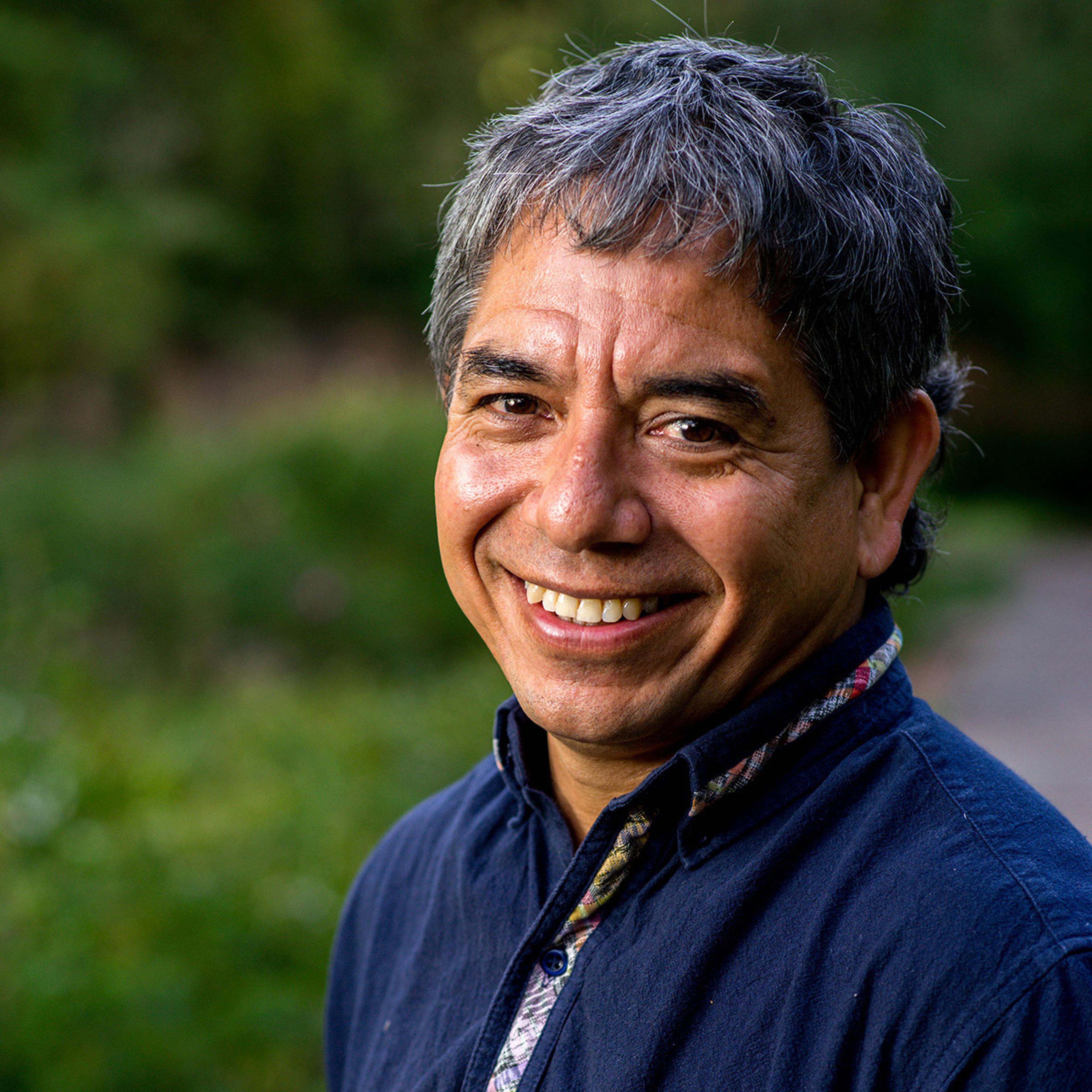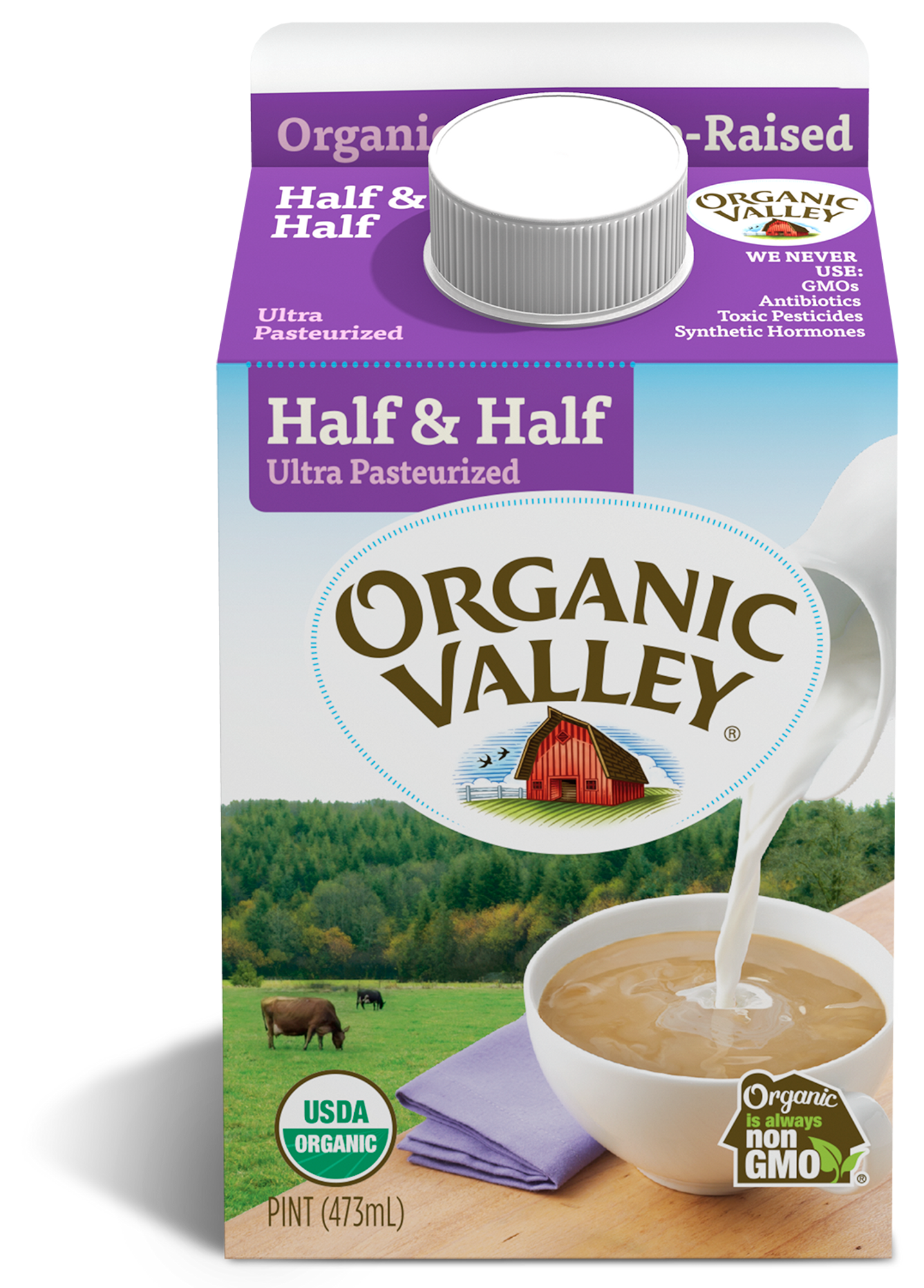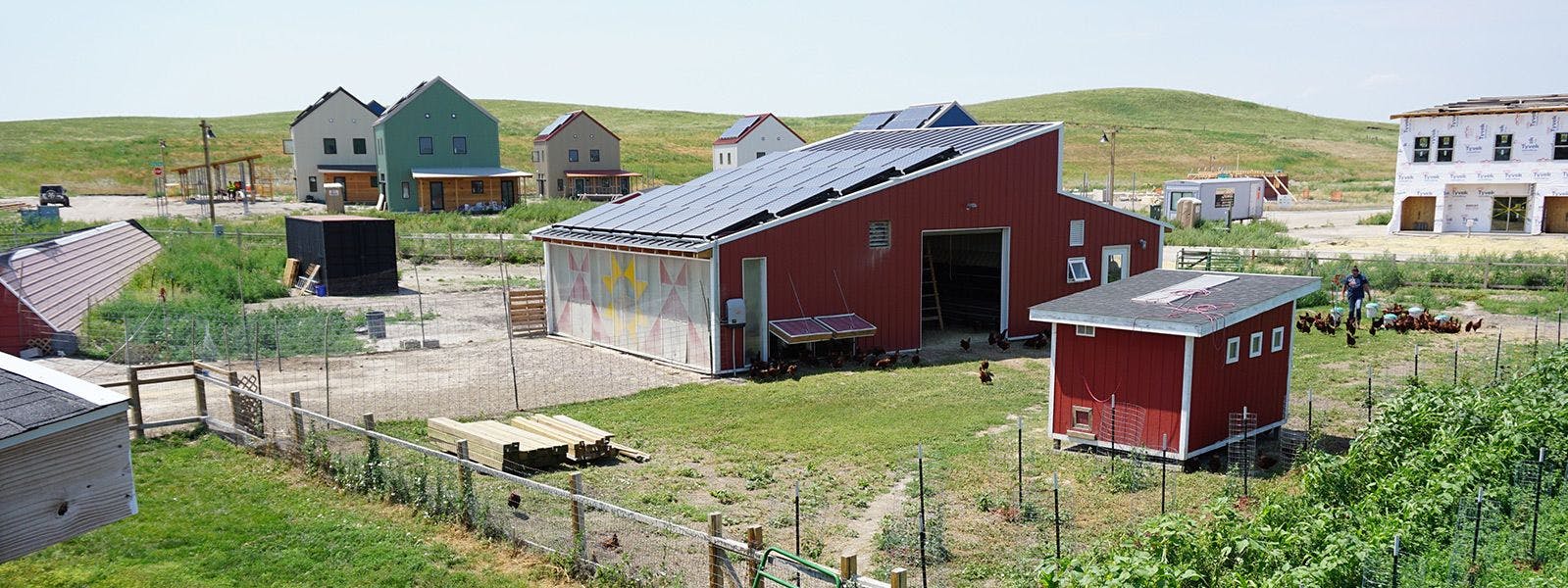
Farming
Reginaldo Haslett-Marroquin: The Next Frontier in Regenerative Agriculture & the Power of Stories
Reginaldo Haslett-Marroquin, Chief Strategy Officer and architect of an innovative poultry-centered regenerative agriculture model that is at the heart of the Main Street Project, talks about how the circumstances of his upbringing in Guatemala shaped his entire relationship with—and approach to—agriculture.
He is also the recent recipient of a lifetime Ashoka Fellowship as a result of this work and the author of In the Shadow of Green Man: My Journey from Poverty and Hunger to Food Security and Hope. The book weaves his own firsthand experience of growing up hearing traditional fables in revolution-torn Guatemala, and his story will delight and inform readers in equal measure.
Tune in to hear about:
- How the character of Green Man manifested in Regi’s own life
- The role of poultry in regenerative agriculture and how Regi credits the chickens his family raised with the fact that he is not simply another child hunger statistic
- The relationship between economic poverty, intellectual poverty and poor nutrition
- How we could re-haul our entire food system with poultry!
Listen at the link above, on iTunes, Stitcher, Google Play or wherever you get your podcasts.

Welcome to Rootstock Radio. Join us as host Theresa Marquez talks to leaders from the Good Food movement about food, farming, and our global future. Rootstock Radio—propagating a healthy planet. Now, here’s host Theresa Marquez.
THERESA MARQUEZ: Hello, and welcome to Rootstock Radio. I’m Theresa, and I’m here today with Reginaldo Haslett-Marroquin, chief strategy officer for the Main Street Project, and he is also the principal architect of an innovative poultry-centered regenerative agricultural model. Also, Reginaldo, who I think everyone calls Regi, is also the author of a rather wonderful book called In the Shadow of Green Man: My Journey from Poverty and Hunger to Food Security and Hope. Welcome, Reginaldo!
REGINALDO HASLETT-MARROQUIN: Thank you! Pleasure to be here with you.
TM: I just want to say how delighted I was to read this book. And for our listeners, Regi, you’re one of thirteen children, aren’t you, from Guatemala?
RHM: Yes, only twelve of us still alive. I was exactly the uneven, unconforming number in the middle, seven.
TM: You were number seven! Okay. I’m always wondering, the middle children are always so industrious and also the ones that are always balancing the oldest and the youngest. And what was so wonderful about your book and what made it so accessible for me was this weaving of fiction and reality. Sometimes I think, boy, the reality of our situation, no one can make up. But where did “Green Man” come from, I guess I should say? And for our listeners, a reminder: the book that we’re talking about is In the Shadow of Green Man: My Journey from Poverty and Hunger to Food Security and Hope.
RHM: Well, “Green Man” came out of this childhood trauma, I guess, with the war and with the violence going [on] around us, and the poverty and the hunger and all that. And as a child, you always, you know, kids around here create imaginary friends. The Green Man was my imaginary friend but came from folk tales. You know, we got a lot of folk tales we were exposed to as kids.
And my dad and his family, his brothers, migrated from the dry region of Guatemala to the rain forest. We ended up as a community up there who would get together for funerals, for parties, for harvest, for planting, for clearing the forest—all of those things, we did it together many times. And one of the things that happened was every single day there was story time at the end of the day. In the forest you’d make a fire, you’d make a dinner and cook your beans, the basic things you got there, and then story time’s natural, just people start telling things. And so I grew up with that kind of culture.
And one of the things that kept coming out was a little green guy. In my head he was green; I know now that nobody ever said he was green. But it was this little guy who was mischievous and absolutely super smart, strategic, smart, and knew so many things, who was born out of the forest. And so, because of that, he was green, because that’s what the forest looks like, and became this link between all that existed in the forest, the knowledge, the animals, the conflicts, the interactions, their struggles, all of that, and the people around the forest. And so Green Man became this link. To me, Green Man was the one that knew everything. He would just naturally acquire knowledge that was sitting there. And I couldn’t talk about it because, of course, who’s going to listen to a ten-year-old who’s got a better idea on how to make a garden work?
I always thought of this Green Man as this external, fictional character, and so I would ask things out of it. You know, why can’t we talk about the oppression by the army? Why are people just killing each other indiscriminately and also so brutally? I wanted to ask those questions but we couldn’t, because you couldn’t talk about those things without being accused of something. You know, and the army especially was very controlling, so you couldn’t even gather outside on the corners, for example. Three persons, three guys gathered around on a corner were immediate targets for army patrols, most of them in unmarked cars.
So Green Man always had an explanation for all of that. And interestingly enough, most of the explanations were right on, because I heard it somewhere, I’m sure—something I read, somebody said something, and I would just record it and extrapolate from that to explain what was going on. But the most fascinating thing, to me, Green Man was the incarnation of nature. And my whole career kind of surrounded around a lot of that made-up science that I had in my head, which was the interpretation of my dad’s teachings and other folks in the forest and all of that, but also further extrapolation from those basic, basic teachings into something more complicated.
My daughter ended up recording Green Man stories and then using them as papers at school. And I noticed, wait a minute—that’s exactly the way I need to write the stories! But I didn’t have the skill. So practice, practice, and eventually I meet Per Andreassen, who is one of the kids who grew up next door to me, and he becomes this very creative writer. And by then I had explored enough, I said, “Per, please pay up! We can actually do a really good story.” And boom, the book came out, and I guess you could say it was ready for it, and they published it, and here we are, talking about it.
TM: You know, we found out about the Main Street Project from Nick Hernandez—your Project Main Street is what it’s called.
RHM: Yes, it’s a nonprofit that I have been working for for quite a while here. It’s really about, poultry-centered regenerative agriculture is really our area of expertise, and that’s the actual topic that we’ve built the programming on. The branding that we are developing is called Tree Range Poultry. That’s really the work that R&D and all the work we have been doing under the nonprofit umbrella of Main Street. And we actually started to develop the permanent nonprofit where the system is going to sit on. But right now, yeah, and Main Street has been a good shell to do this in.
TM: Well, you know, I was thinking about how you had wild chickens around you, didn’t you, in the forest, where you spent a lot of time on your farm? So that this chicken goes way back to your childhood, it sounds like.
RHM: Oh yeah, for me it’s multigenerational. I mean, part of the reason I am not just a statistic in Guatemala of children who died out of malnourishment or that ended up with 20 percent of their brain capacity because of malnourishment—the only reason I’m not one of those statistics is primarily because of the chickens. If you look at eggs and their nutritional value, especially eggs from chickens like the ones we raised, which are completely outside, hardly ever got much food—they foraged for their own stuff, which means they got an immense diversity of different nutrition into their bodies, and that transferred into the eggs. And for sure they never got a pound of feed, because feed didn’t exist for us; until I went to ag school I didn’t know that such a thing existed. And so the quality of those eggs, for us, you know, even if it was an egg split between two brothers, it was still back into that core brain development that most people in poverty and hunger actually lose, and as a consequence of that, it wrecks their ability to fully develop as human beings the rest of their lives. That really is, to me, the miracle.
And if we are going to actually seriously get into fixing global hunger and poverty that comes not because of lack of material resources but because of lack of creativity and mental ability to overcome and create solutions for your problems, that’s really where poverty comes from. Not because there is no money, or things like that. It’s rather, I’d call it intellectual poverty, is really the foundation of economic poverty. And intellectual poverty is the result of poor nutrition, primarily. You can become very intelligent without ever going to school. My dad is an example of that—a very capable individual with more science in his head than a lot of PhDs I meet now. Yet the food was the reason he was able to develop to that extent, and that was, to us, also the same situation.
So the chicken was always in our history. As a child, I took care of chickens a lot. I really liked them because they gave me comfort, but also they were born for the food and the family’s most important source of protein, both meat and the eggs. And they could almost take care of themselves, except when they were attacked by dogs and stuff. But overall, yeah, I understood fully that once I graduated from agriculture school and once I got into this work that I do now, that if we are going to actually create changes at a significant level, one absolutely strategic way to start is by reengineering how we do poultry everywhere in the world. And that’s the mission that came out of that realization.
(11:19)
TM: Well, that is a great mission. And go back to your dad for a minute and his just tremendous common sense. He is a real figure in your book that I have come to just admire so much, and really so much common sense—as you’ve put it, so much innate intelligence, but also someone very in touch and connected with kind of a holistic look at life. And it seems to me that you seem to have gotten a tremendous amount of both that common sense and innate understanding of nature from your dad, while also a whole lot of the lessons and/or things that you learned when you went to ag school. How is it that you were able to figure out, when you were in ag school, what to take from it?
RHM: Yeah, of course. We were trained in a very traditional school, but also, in Guatemala, we still have in traditional schools, we’ve still got ancient knowledge that is taught. You know, we still learn about the way the Mayans did agriculture. I mean, nobody at the University of Minnesota is ever going to be taught that, probably, as part of their formal scientific training. Yet we respected that, the professors did. But we also learned about row crops, about Pioneer, about Bayer, about all of that, all the recipes, all the chemicals.
The reason I didn’t accept all of that as truth was because I had already seen how things work without any of that. And I was doing the math all the time, and the results were not better. I mean, mathematically, they were not better. Of course if you look at just bushels per acre of corn, yes, that acre is going to produce more than what we were producing in our land in the forest. But I never saw that because I was already trained, I already understood that the land can produce vertically so much. If you are talking about feeding people, you don’t just put one thing in the soil. You let it explode with everything it can actually do. And there were still ways to mechanize some of that and to make efficient use of the labor and things like that, but there is no need to compromise.
I already had that in my head because I could see some of our own neighbors destroying their forest and then going really, really hungry because then they really didn’t have any food for most of the year, while the diversity of croppings that we did, the multistory production, was feeding us just fine. And most of the time we were feeding a lot of those other folks who were doing the stuff that the agronomists and the scientists were telling them to do. So I already had that ingrained. But one of the reasons I was able to kind of inoculate my educational process from falling in the trap of that ideology was that I always asked questions that no professor ever was able to answer. And the fact that they couldn’t answer that, those questions, I lost total credibility for my professors, and I focused on just graduating rather than…
And then also there was a lot of good stuff. So, for example, drainage and irrigation systems, all that formulaic stuff, absolutely critical, because you can use that while working with nature to its fullest extent. Water management, you know, chemistry, biology, physics, [unclear], you know, sylviculture—those were things that really helped expand the way we saw the forest, because I knew what was going on, I knew that it worked, but I didn’t know exactly how. And learning the how was really critical—not necessarily what to do but how things work.
(15:31)
TM: If you’re just joining us, you’re listening to Rootstock Radio, and I’m Theresa Marquez. And I’m here with Reginaldo Haslett-Marroquin, who is the chief strategy officer and principal architect of an innovative poultry-centered regenerative agriculture model that’s at the heart of the Main Street Project that Reginaldo is the author of. And he’s also the author of In the Shadow of Green Man: My Journey from Poverty and Hunger to Food Security and Hope.
Regi, you know, in the book you talk about how you discovered that using animal manure and scraps from the kitchen made great cilantro that you were able to take to the market and sell it all. I wonder if you could tell a little bit of a story about that.
RHM: Yeah, I mean, it was really simple. We always grew stuff. My mom always had gardens in the front of the house, and I’d watch her take care of them. And in the morning she would go and gather some of the manure from the chicken coop. And we didn’t have a lot of chickens—we just had a few, and we had a few eggs here and there. And they always kept dying, and the dogs kept killing them, and then thieves always stole our chickens in the night. And so we could never raise a flock to a good size. And there was also, you can’t do that if you are never going to feed them feed either. So we got ten chickens here and there, and all that. But I always noticed that she would put that in the plants and they always did better. So what I figured was there was some magic on that, but there was no manure, because she was already taking all of it.
So there was this guy down the road who had beef cattle, and they’d put them inside the buildings at night. And so they had a lot of manure in there, and he had to clean it, and he would have to pay for people to clean it. So he was very happy that a kid would come and just take the stuff. I actually was already producing a little bit of cilantro at that point, and it wasn’t doing very well. So I started with a wheelbarrow, would go down, fill up bags of manure, bring it back. And then the cilantro started doing really well. So once that started to happen, you know, I used to plant it really thick and then I would start thinning it and selling the thin-outs. And by the time I was done, each plant of cilantro was the equivalent of probably twenty, thirty of the thinnings I did before. They would just explode once they got thinned out. So I would just keep separating. So a single raised bed of cilantro would produce me for quite a bit.
And so once I noticed that, I was also getting a little bit of income, there was a neighbor that had a horse-pulled wagon. So I hired him, and he would bring me up to twenty bags of manure at a time. So I was focusing on just filling them up. He would load them in, and he would charge me one quetzal to bring the whole load, which was the equivalent of the first days that I would take the cilantro to town. I would walk back home with that quetzal in my pocket. By the time that was set up, I was bringing two quetzales a day, and then more. And then so one of my younger brothers started to look at it and say, “Well, can I help you?” And so we started bringing more into the market.
And it was fascinating, because one of the things I hated about the school was that we ate beans and tortillas and maybe eggs, and sometimes a stick of cheese, some fresh queso fresco, and then we’d go to school and by… We were at school at 7:00; by 9:00 a.m. I was starving, absolutely starving. And we never, never had… We would go all the way to 1:00 p.m. before we got home, and it was so painful that I really didn’t want to go to school. I liked school but I didn’t want to go because of that.
So once I started doing that, I could have a nice snack. And one of the things that we could have done was bring a tortilla with beans from home, but we were already stigmatized, we were already ostracized, because I was already going to school without shoes, not even long pants. My mom could sew shorts for us so that’s what we had, and she’d sew our shirts. Anyway, we just wanted to have the same snacks as everybody else. And that business kind of changed all of that for me and for some of my brothers, because then we could share the income. And then I stopped because I had to prepare to go to the highlands to prepare for ag school, and so I stopped doing that.
TM: You know, you, I can see, at eleven years old were already a tenacious entrepreneur! You have just been reborn in so many different kinds of things. And I just was very heartened, though, in the end you said that you had this belief or an observation that agriculture has changed the world many times, and that now we have to use agriculture again to change the world. And I hadn’t really thought about that. But I wonder if you’d speak to that a little bit.
RHM: Yeah, I mean, if you think about something pretty simple. So I’m parked in front of the IKEA store, it’s a big paved area; the airport, I can see the planes landing behind me; we drive cars, we build buildings, build roads, trucks, spaceships. Yet in order to do any of these things, you can’t do any of it if you are not nourished. That is the fundamental lynchpin of our existence.
And yet we have developed an industrial complex based on ownership and control of the very resources that makes that simple act of eating in the morning so you can do all of these other amazing massive things that accumulate wealth, that build computers, that do all of that. Yet we’ve degraded, denigrated, degenerated the way we produce the very thing we depend on, to such a point that we are now literally at peril. We have now literally threatened our own existence because we’ve wrecked the very foundation, the very source of the energy that lets us do those things. And we did that by wrecking the foundational natural cycles and biophysical chemical processes that nature designed for billions of years so that we could exist in the first place. And yet we are so arrogant, so ignorant, that we argue that to feed the world you have to do these things that wreck it in the first place and destroy the very ability of feeding the world.
So we absolutely can change the world if we change the way we do food. And in fact, if we don’t, we’re not going to make it very long. Whether we got volumes of stuff to eat has nothing to do with whether you get the proper nutrition. Food is not what we need. Nutrition is what we need. We get food; we don’t get nutrition. And without nutrition, volumes of food are worthless.
That’s the situation we’ve got today. And if we don’t change that, believe me, this world is going to change for the worse. So we’ve got to change that so the world can change for the better. And it’s probably the most important thing we can do at this time in our history as human beings. Forget about going to Mars, forget about all this other stuff. It is our nourishment that is at stake right now.
(24:02)
TM: So Regi, you know, I guess I’m wanting to ask you—you have so much inspiration for, I think, so many people, because you just say “This is what we need to do, and we’re just going to keep doing it.” On your best and your worst days, what really gives you hope?
RHM: What gives me hope is that so many millions of people have realized that, one, industrial systems are not going to feed the two billion that are not fed anyway. It’s already over. That’s already an established fact. And those folks are starting to wake up to the fact that at the end of the day, despite the decades of promises, they are stuck with having to fix hunger themselves anyway. And so that gives me hope because we at least are waking up to the reality of the current ownership and control of the food system, and what it’s actually being built for is just for money. It’s not really to nourish people. So that gives me a lot of hope, because unless we wake up, we won’t make the choices that we need to make to restructure how we do this.
The other thing is that also people who have been fed the idea that food can be cheap are realizing that you can’t have such a thing. That’s an illusion. And so a lot of folks are waking up to that and starting to choose nutrition over volumes. You know, even the USDA has reported that the nutritional value of an apple from back in somewhere in the 1930s compared to apples today, it will take upwards of four apples today to make up the nutritional value of one apple before they got degenerated to what they are today. And you could say the same for corn, for beans, for beef, for pork, chicken, eggs—everything followed the same pathway.
See, one thing that conventional thinking, when you come into a new culture, thinking flat and in a straight line, is that you very quickly think of production per acre and things like that, and so you get into the production mindset. And then you forget that you are really just an energy manager. And then you waste a lot of energy thinking linearly. So one of the things I always say is, number one, get into the energy manager mindset, because then you’re going to see the biochemistry, the physics; you’re going to see the explanation to where that biomass came from in the rain forest. Now I know what the answer is, but it wasn’t until like in the last ten years that somebody gave me an answer that was satisfactory. Dr. Arden Andersen wrote a very important book about the energy life cycles in agriculture, and it’s the first time I heard this explained right and satisfactorily.
And so one of the things I always say is, I don’t look at an acre as an extension of land that measures 46,300 square feet. I don’t see flat areas. What I see in Minnesota, for example, is minimum one acre to me is 1,110,200 cubic feet, which expands at least 12 feet below the ground and 12 feet above the ground, minimum, as a fully inclusive energy management infrastructure that nature’s gifted us with. So to me, that’s an acre. That’s a whole different way of thinking about this, and when you think that way, then farming becomes way more rewarding because it’s no longer about work. It’s about managing energy. Because it’s no longer about production, because production is equivalent to work. And we, as I said in the book, work isn’t what we’re looking for.
TM: Regi, you are definitely an inspiration for all of us. And I wanted to thank you for your thinking about this. Just all the experience that you’ve had through your whole life has added up to just a tremendously wonderful message that you’re giving everyone through your book and through the work that you’re doing. So MainStreetProject.org, RegenerationInternational.org, and then Thunder Valley are all places that our listeners could Google to get more information about a new way to do agriculture. And I just want to thank you so much for taking the time to talk with us, and it’s been a real pleasure to get to know you more.
RHM: Thank you very much for this interview. I really appreciate when people get interested in our stories. It’s been a great half an hour here, and I hope you do more of it. Thank you very much.
Related Articles
- Tags:
- social justice,
- regenerative agriculture,
- Rootstock Radio













